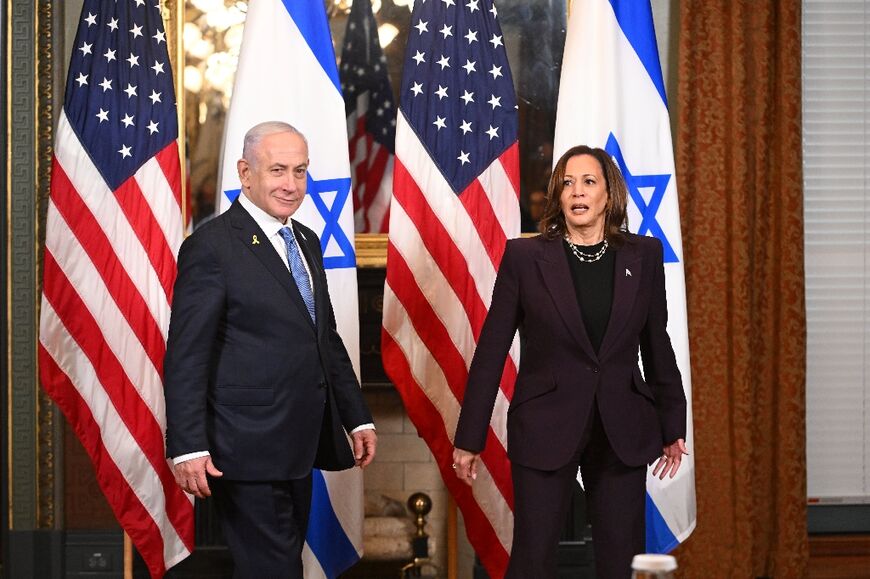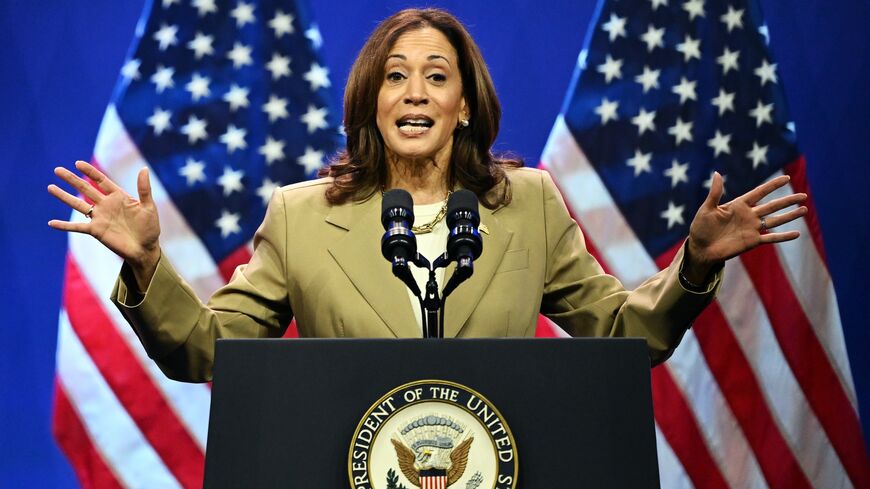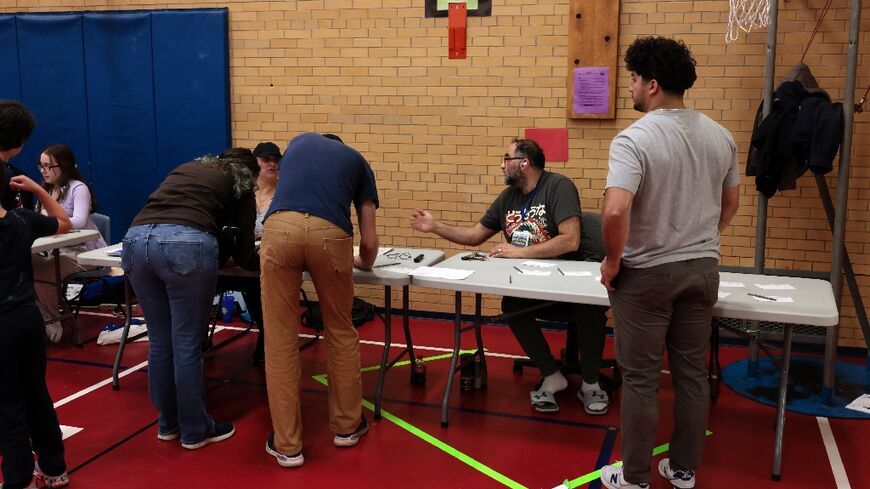US election feels reverberations of Middle East conflict

Conflict in the Middle East has weighed heavily on the US presidential campaign over the last year, and now -- as tensions escalate further -- it could sway November's election.
Democratic candidate Kamala Harris finds herself treading on eggshells as she upholds President Joe Biden's support for key ally Israel, while running the risk of alienating Muslim and Arab American voters.
Meanwhile, Donald Trump has pounced on the conflict to warn of a third world war -- an apocalyptic prognosis that he blames on the incumbent administration.
On Wednesday the Republican nominee announced plans to attend an October 7 memorial ceremony in Florida with members of the Jewish community.
He said in an accompanying message that the "inept and failed policies of the Harris-Biden administration have enabled the Iranian-backed proxies that have sewn a path of death and destruction, resulting in catastrophic global ramifications."
The former president claims, and has for almost a year, that the deadly October 7 Hamas assault which resulted in the deaths of 1,205 people in Israel, mostly civilians, would never have happened if he were in office.
- Jewish voters -
Trump, 78, is hoping his focus on the Middle East will boost his popularity with Jewish voters -- an electorate that has historically voted for Democrats and largely favors Harris ahead of the November 5 vote.
"She hates Israel," the Republican said of Harris, 59, during their televised debate. "Israel, in my opinion, will cease to exist within two years, and I believe I'm 100 percent right," he said in another exchange.
The former president is likely eyeing to gain votes in New York and Pennsylvania, which each have large Jewish populations, but his aggressive tone has at times backfired.
He accused Democratic Senator Chuck Schumer, the highest-ranking Jewish elected official in the United States, of being a "proud member of Hamas."
And in imploring Jews to vote for him, he said that if he does not win the election "the Jewish people would have a lot to do with the loss" -- remarks immediately criticized as anti-Semitic.
"Setting up anyone to say 'we lost because of the Jews' is outrageous and dangerous," the American Jewish Committee said, while the Jewish Council for Public Affairs condemned his use of "anti-Semitic tropes."
- Michigan key -
In the United States' unique electoral system -- where a sole state can sway the entire outcome -- the Harris campaign has fixed its eyes on Michigan.
But it's a swing state with a sizable Arab American population, with voters watching as the civilian death toll in Gaza rises.
"Concerns about the fate of Palestinians can have an effect on the outcome of the contest there," cautions Michael Traugott, political scientist at the University of Michigan.
Israeli incursions and airstrikes on Lebanon could further have an impact, although it is currently "too early to tell," he added.
As the standard-bearer of a Democratic Party divided over Israel's actions in the Middle East, Harris is attempting to walk a tightrope.
She has followed in Biden's footsteps by pledging support for Israel, saying she will "always ensure Israel has the ability to defend itself."
But she has been more insistent than the president in her calls for a ceasefire.
"I will not be silent," she said of the humanitarian situation in Gaza, and she was notably absent from Israeli Prime Minister Benjamin Netanyahu's Congress address in July -- which scores of Democrats chose to boycott.







